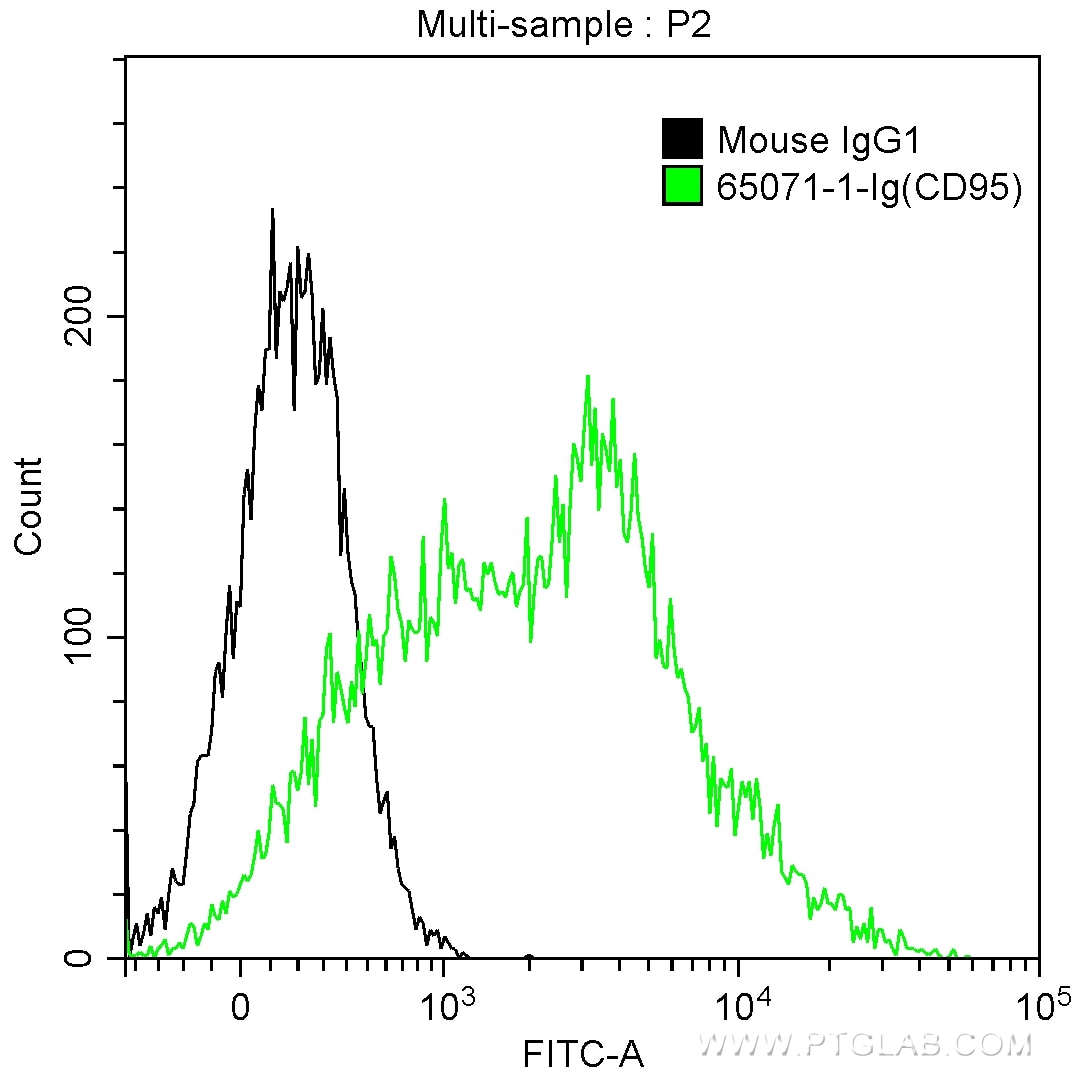Anticorps Monoclonal anti-CD95
CD95 Monoclonal Antibody for FC
Hôte / Isotype
Mouse / IgG1, kappa
Réactivité testée
Humain
Applications
FC
Conjugaison
Non conjugué
CloneNo.
DX2
N° de cat : 65071-1-Ig
Synonymes
Galerie de données de validation
Applications testées
| Résultats positifs en cytométrie | lymphocytes de sang périphérique humain, |
Dilution recommandée
| Application | Dilution |
|---|---|
| This reagent has been tested for flow cytometric analysis. It is recommended that this reagent should be titrated in each testing system to obtain optimal results. | |
| Sample-dependent, check data in validation data gallery | |
Informations sur le produit
65071-1-Ig cible CD95 dans les applications de FC et montre une réactivité avec des échantillons Humain
| Réactivité | Humain |
| Hôte / Isotype | Mouse / IgG1, kappa |
| Clonalité | Monoclonal |
| Type | Anticorps |
| Immunogène | Cellules L humaines transfectées par CD95 |
| Nom complet | Fas (TNF receptor superfamily, member 6) |
| Masse moléculaire calculée | 35-38 kDa |
| Numéro d’acquisition GenBank | BC012479 |
| Symbole du gène | FAS |
| Identification du gène (NCBI) | 355 |
| Conjugaison | Non conjugué |
| Forme | Liquide |
| Méthode de purification | Purification par affinité |
| Tampon de stockage | Solution saline tamponnée au borate, pH 8,2. |
| Conditions de stockage | Store at 2-8°C. Stable for one year after shipment. |
Informations générales
Fas (CD95/APO-1) is a transmembrane glycoprotein belonging to the tumor necrosis factor (TNF) receptor superfamily. It can mediate apoptosis by ligation with an agonistic anti-Fas antibody or Fas ligand. Stimulation of Fas results in the aggregation of its intracellular death domains, leading to the formation of the death-inducing signaling complex (DISC). FAS-mediated apoptosis may have a role in the induction of peripheral tolerance, in the antigen-stimulated suicide of mature T-cells, or both.
Protocole
| Product Specific Protocols | |
|---|---|
| FC protocol for CD95 antibody 65071-1-Ig | Download protocol |
| Standard Protocols | |
|---|---|
| Click here to view our Standard Protocols |


